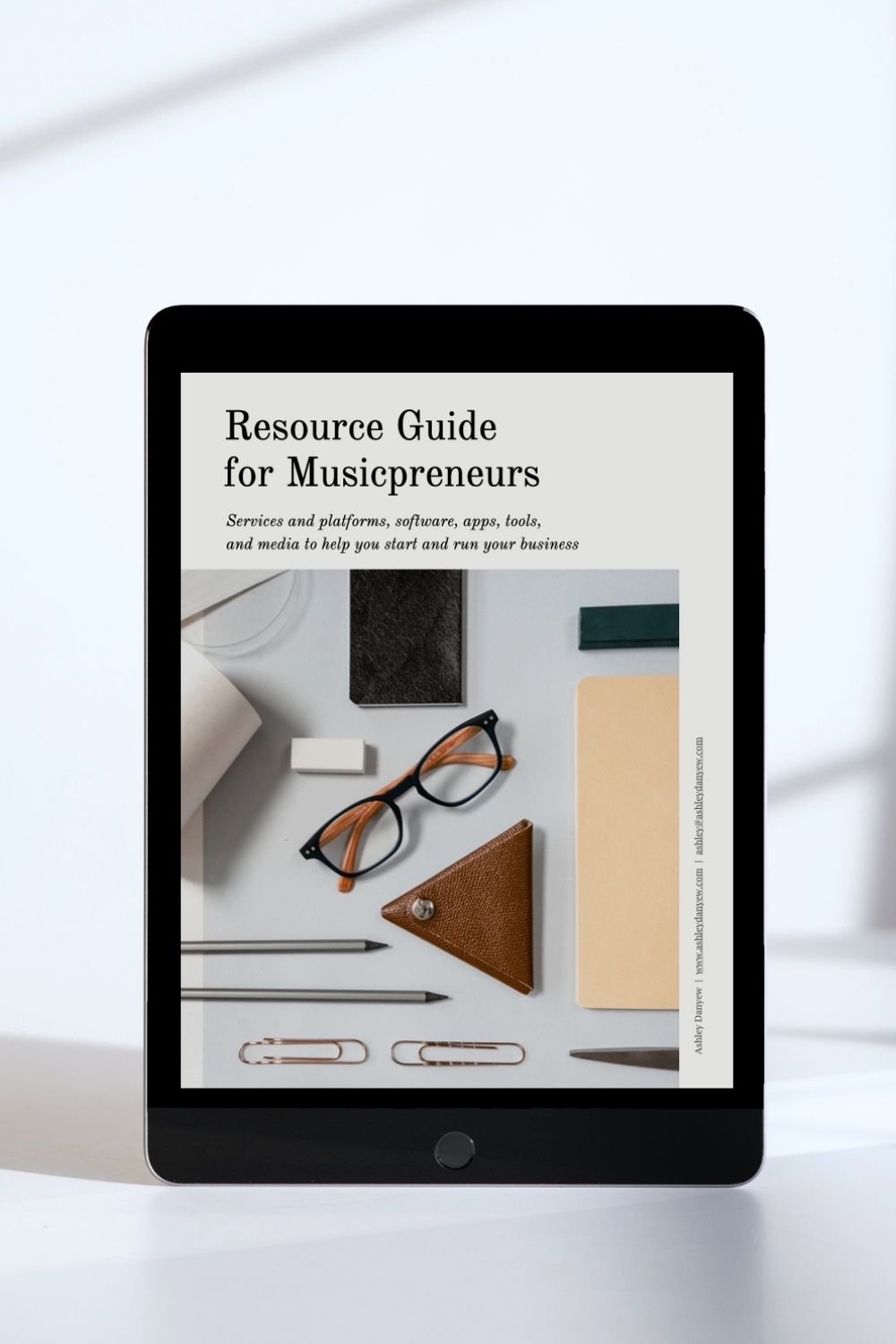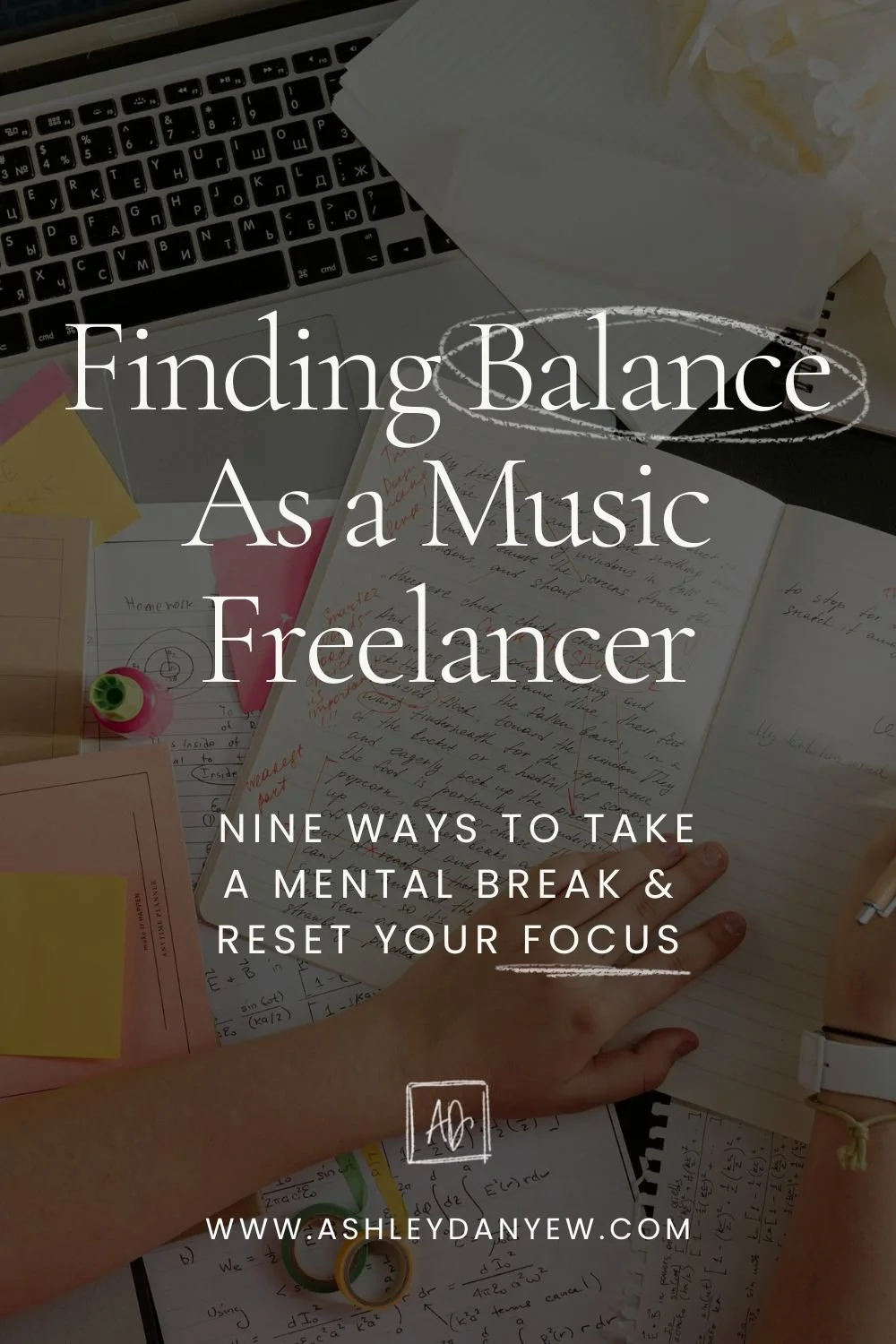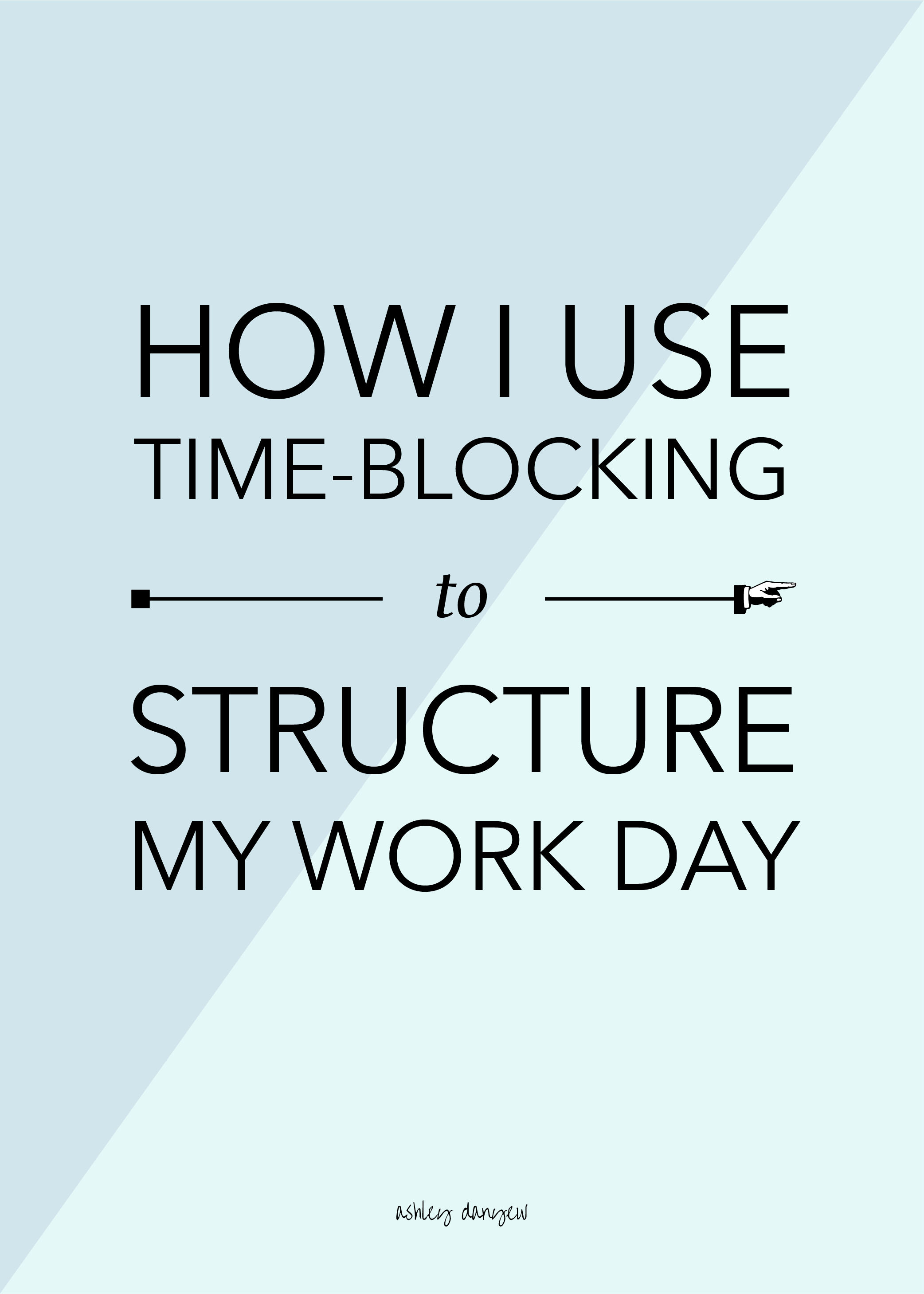Editor’s Note: Read an updated version of this post here.
As any freelancer or small business owner will tell you, managing your finances is a huge part of the job.
From the ebbs and flows of self-employment income to keeping track of all your deductible expenses to paying quarterly estimated taxes, managing your personal and business finances is no small feat.
But, having a clear, organized system for keeping track of everything is a great place to start.
As two freelancers and musicpreneurs, Steve and I have found that sorting our money into different places helps us manage multiple income streams and work toward our savings goals.
It also makes paying quarterly taxes much easier.
Wondering how to get started organizing your finances as a freelancer? Here's a behind-the-scenes look at how Steve and I organize our finances as full-time musicpreneurs:
How to Organize Your Finances as a Freelancer
Business Checking
Through the years, my income has come from several sources — part-time church positions, private teaching, a graduate assistantship, an Etsy shop, freelancing (gigs, administrative support, contract work) — but it all gets deposited into this account (Steve has one for his business income, as well).
This doesn’t need to be a “business” account — a personal checking account is fine — but it needs to be where you deposit all your business income and pay all your business expenses. Use this account for things like business software, domain and hosting payments, and anything you put on your business credit card (internet, instrument maintenance, sheet music, office supplies, equipment, business travel, conference registrations, etc.).
Business Savings
Steve and I recommend having a personal (or business) savings account linked to the checking account you’re using for your business. Again, this doesn’t have to be categorized as a “business” account at your bank, but it needs to be a separate account linked to your business checking. This is exclusively for setting aside tax money.
Each month, I transfer 25% of my self-employment income into this account for estimated taxes (think of this like an employer withholding taxes from your paycheck). This makes paying quarterly taxes a breeze!
If you have a mix of different types of income, you only need to take out tax money for self-employment, freelance, and contract work. If you’re getting a W-2 from an organization at the end of the year, your employer is withholding taxes for you (for that income) each month.
Personal Checking
In addition to your business accounts outlined above, you’ll need a personal checking account. We each had personal accounts before we were married and now we have one joint personal account. Use this account for rent/mortgage payment, insurance (car, renters/house, health), and anything you put on your personal credit card(s) (groceries, gas, personal care, personal travel, etc.).
Free Download
Your go-to business resource guide.
Inside this 10-page guide, you’ll find 30+ of our best recommendations for services, platforms, software, apps, tools + media (e.g. the things we actually use in our businesses) to help you grow and run your business.
A quick note about our savings:
We've found it's easier to keep track of our savings (and save for multiple things at once) with separate accounts, so we have several:
House Fund
I contribute a set amount each month to this fund (a high-yield savings account). This can be used to save for a downpayment or to build up savings for home improvements.
Piano Fund
We had a designated fund for our future piano before we bought our house. We didn’t actively save to this fund, but we added money to it over the years (monetary gifts, gig money, etc.) and invested in a few mutual funds. What’s something you’re saving for?
Car Fund
We've both made regular contributions to this savings account over the years. Right now, Steve contributes a set amount each month. The goal is to save up enough to pay for our next car with cash. You could also use a savings account like this to save up for maintenance and unexpected expenses.
Emergency Fund
We feel it's especially important for self-employed individuals and their families to have a few months of living expenses set aside (most people recommend 4-6). This is in case you have an emergency (house, health, car) or something happens with one or more of your income streams. We don't actively contribute to this account right now — we consider ours fully funded for the moment — but we know it's there if we ever need it.
(Read more about setting up an emergency fund here.)
Roth IRAs
I know retirement sounds a long way off, but now is the time to start saving! (Read more about that here.)
The Roth IRA is a retirement account that lets you contribute up to $6000 per year. Since you contribute post-tax to these accounts, the money is tax-free when you withdraw it. (Read more about Roth IRAs here.)
Right now, we contribute a set amount per month to meet the annual limit.
Step into the role of CEO and design a music career on your terms.
The Musicpreneur Model is the only online program + template suite designed specifically for self-employed classical musicians and music freelancers that teaches you how to build a diversified portfolio career in music (that supports you financially and artistically) + develop the skills you need to be a small business owner.
How to Stay Organized
So, you might be thinking: Whoa. That's a lot of accounts. How do you keep track of it all? Here are a few things that work for us:
Use a tool like Mint to see your financial picture at-a-glance and check up on all your accounts each month.
Automate your monthly contributions to whatever savings accounts and your Roth IRA.
One day a month, schedule all outgoing payments (credit cards, rent, etc.), deposit checks, calculate monthly income, and transfer tax money to your savings account.
I hope this is helpful to you as you begin organizing your finances. Have a question about this process? Leave a comment below.
P.S. Looking for more music career resources? Take a look at my other website and blog, Musician & Co.
More helpful resources:
5 Personal Finance Tips Every Freelancer Should Know
Financial Management for Freelancers
How a Personal Finance Journalist Manages Her Own Money








































